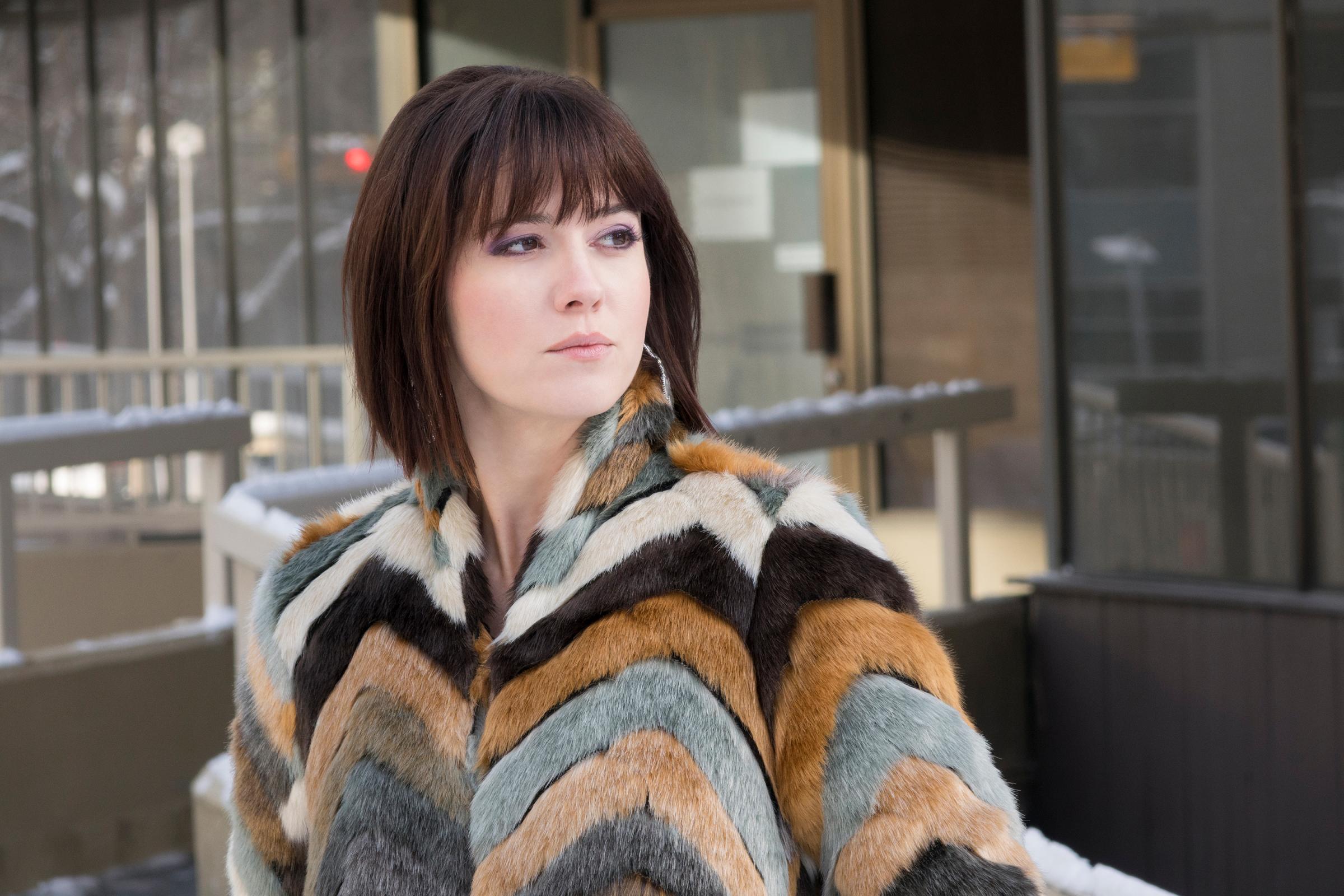Fargo, Noah Hawley‘s television series on FX, borrows tonally and thematically from the Coen brothers’ 1996 film but spins a new tail every season. In the third season, which has aired three episodes so far, Hawley’s best invention is the character Nikki, a bubbly femme fatale played by Mary Elizabeth Winstead. The ex-con and bridge champion dreams of a bright future with her boyfriend, who also happens to be her parole officer Ray (Ewan McGregor). But the couple is broke.
In order to finance their ride into the sunset, Ray attempts to steal something valuable from his brother (also played by Ewan McGrergor). And as is the way with these Fargo stories, things go awry. Nikki becomes the devil on Ray’s shoulder, but she’s not a pure villain. After all, their criminal acts are committed in the name of love. As the story unfolds, Winstead talks to TIME about why Nikki’s love for Ray is real and how she and the police officer Gloria (Carrie Coon) represent light and dark in the series — but not in the way you might think.
Did Noah Hawley have a particular vision for Nikki?
The main question that I had for him in order to really know her was whether or not her love for Ray was real. He immediately, without having to think about it at all, said, “Yes. It’s completely genuine. They’re completely in love and it’s a true, real relationship.”
Then it all kind of clicked in for me because that was the only thing that, to me, could have turned the performance one direction or another. So once I knew that their love was real, then I was able to really move forward with this sort of sweet, bubbly, optimistic version of a femme fatale.
When you say that she’s very optimistic, what do you mean? I think we’ve seen that she is a romantic, in a twisted way.
Yeah. Well, I think she’s just unexpectedly hopeful about life, even though she’s this ex-con and comes from this darker past. She’s the one, I think, in the series with the most hope. She looks at her future as being this big, bright, wonderful thing, and she’s going to bring Ray into that.
I think she’s a real strategist, so she’s always thinking in terms of how she’s going to win in any given scenario. She really believes that she and Ray are going to win as a couple and as a team. I think it comes from a very sweet place, even though it sometimes leads to very bad things.

How is she different from other characters in the Fargo universe?
I think it was a bit of a blessing that Nikki stands a bit apart from typical female characters in the Fargo universe. At first, I thought she was a little similar to Peggy [Kirsten Dunst] from last season just in her optimism and driving Ray to make that decision. But once I started playing her and I brought all the elements of who she is together, she became so her own person.
I don’t think I’ve seen anyone quite like her in the Coen Brothers universe, but she fits in so well in that world, which I think is a credit to Noah [Hawley].
Were there any Coen Brothers movies that particularly inspired you?
I’m a huge Coen Brothers fan, so I’ve seen all of their movies several times, especially Fargo. That’s one of my favorite movies of all time, probably my most watched movie. I think the night before we started shooting I watched Raising Arizona because the shot where I get arrested at the beginning of the episode was sort of an homage to that.
Did you actually learn or know how to play bridge?
I had no idea how to play bridge, and I still have no idea how to play bridge. I took a couple lessons and Ewan and I went and watched a bridge tournament together right before we started shooting here in Calgary, which was very eye-opening. I mean, I will never understand this game. But when we went and watched people play, then we could go okay, yeah, that’s right, we’re actors. We can pretend we know what we’re doing.
A lot of people have theorized that the two female characters, Nikki and Gloria, represent that kind of light side and dark side in this season. Do you think that that’s an accurate portrayal of those two characters?
I think it is. I think in some ways throughout the season they’re sort of on these parallel trajectories. We don’t get that much stuff together, but the characters are connected in some way as the season goes on. I think it’s interesting because they do sort of represent the light and the dark, but it’s interchangeable.
In some ways, Gloria’s the light because she’s the moral center. She’s the one who’s not doing bad things like everybody else on the show is. But in other ways, Nikki’s the light because she’s quite a bit more optimistic and gutsy and full of spirit, whereas Gloria is going through a dark period of her life. She’s a bit more cynical and her worldview maybe isn’t as bright as Nikki’s. So I think it’s really interesting that they both kind of represent the light and the dark for different reasons.
More Must-Reads from TIME
- How Donald Trump Won
- The Best Inventions of 2024
- Why Sleep Is the Key to Living Longer
- Robert Zemeckis Just Wants to Move You
- How to Break 8 Toxic Communication Habits
- Nicola Coughlan Bet on Herself—And Won
- Why Vinegar Is So Good for You
- Meet TIME's Newest Class of Next Generation Leaders
Write to Eliana Dockterman at eliana.dockterman@time.com